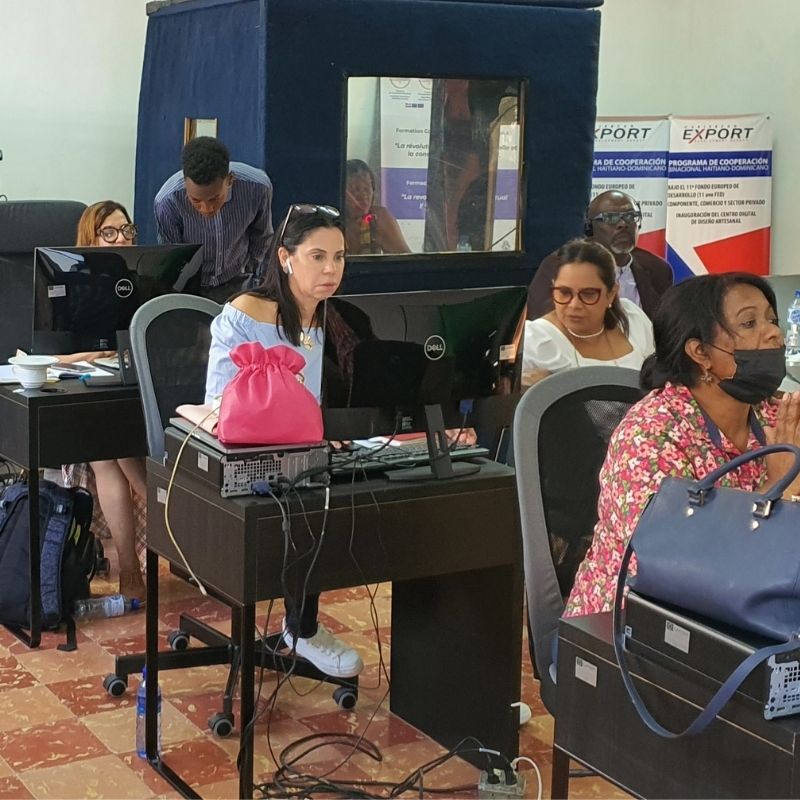- 20 jewellers from Haiti and Dominican Republic complete digital design workshop to enhance production capacity
- Participants will hold a binational jewellery exhibition in February 2022
- Training coordinated by Caribbean Export and supported by the European Development Fund
Twenty jewellers from Haiti and the Dominican Republic took part in a three-day training course in November 2021 to learn new skills in virtual jewellery design and 3-D modelling. Participants learnt to adapt traditional craft skills to digital platforms and expand creative and production capacity in the sector. Â
Twelve people from Haiti and eight from the Dominican Republic attended the training. The participants will hold a binational jewellery exhibition in February 2022 combining traditional techniques with new digital design technologies. Handicraft traditions in the two countries are linked to techniques and production processes of African and Taino origin.
“By supporting this sector, we are betting on micro and small cultural and creative industries and contributing to the revitalisation of the economy that is very relevant in the current conditions in the context of the COVID pandemic,” said Lidia Encarnación, Director of Regional Cooperation of the Ministry of Economy, Planning and Development of the Dominican Republic, in a speech introducing the training.Â
The activity was coordinated by the Caribbean Export Development Agency under the Component for Trade and the Private Sector development of the Haiti-Dominican Republic Binational Cooperation Program. It is financed by the European Union under the 11th European Development Fund.Â

Raymond Lafontant, Technical Advisor of the Office of the National Authorizing Officer of European Funds in Haiti, stressed that the two countries have a lot of potential to differentiate themselves from other jewellery producers due to their ancestral techniques and designs, influenced by their great cultural richness and diversity.Â
“The trends in the jewellery and costume jewellery sector in world markets are directed towards handmade products with an emphasis on quality, in the details that print differentiation and exclusivity. Introducing digital techniques creates a new market niche in this sector,†said Leo Naut, Deputy Director of Caribbean Export in the Dominican Republic.Â
The training was followed by a graduation ceremony. Alán Fernández, Program Officer of the EU Cooperation Section said in a speech at the event that the EU is committed to promoting processes that boost trade and inclusive development in the Dominican Republic and Haiti and throughout the Caribbean.
Martino Vinci, from the Delegation of the European Union in the Republic of Haiti, stressed the importance of the two countries taking advantage of the added values ​​of their artisan markets, as well as increasing the possibility of working together so their economies benefit from these creative industries.